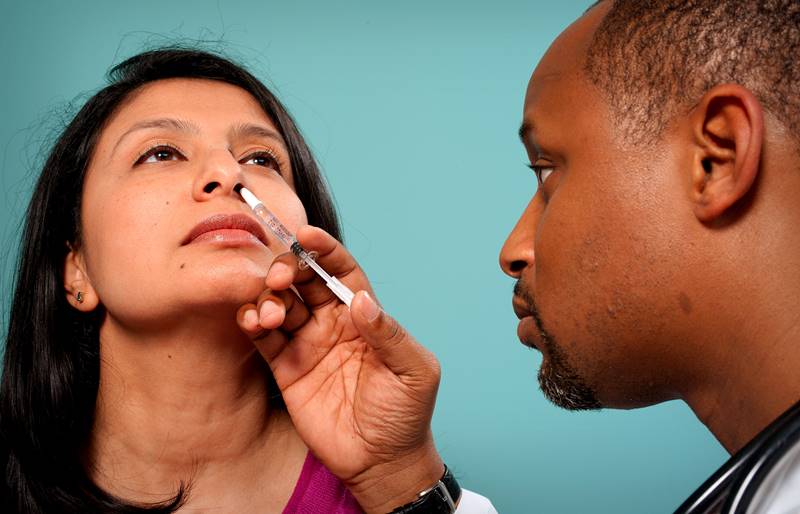Afraid of injections? Single-dose, inhalable COVID19 vaccine shows promising results in animal testing phase
Since it is given intranasally, the COVID19 nasal vaccine — PIV5 — may also be easier to administer, especially for those who have a fear of needles. More details here.


The inhalable PIV5 vaccine targets mucosal cells that line the nasal passages and airways. Photo: Pixabay
Coming in as a ray of hope for those who are fraught with fears about getting a COVID19 vaccine in the form of an injection needle, a new research inches closer towards the possibility of a single dose, inhalable vaccine. The vaccine is designed to be administered in the form a nasal spray and has shown promising results in animal trials.
Researchers from the University of Iowa and the University of Georgia in the United States have been successful in exacting an immune response against the COVID19 in ferrets. The research titled ‘Protection of K18-hACE2 mice and ferrets against SARS-CoV-2 challenge by a single-dose mucosal immunization with a parainfluenza virus 5–based COVID-19 vaccine’ was published in the Science Advances journal on July 2.
Explained: What is the third wave of COVID19? Will it hit India? Are kids at greater risk?
“The currently available vaccines against COVID-19 are very successful, but the majority of the world’s population is still unvaccinated and there is a critical need for more vaccines that are easy to use and effective at stopping disease and transmission,” Paul McCray, a researcher from the University of Iowa and the co-leader on the project explained.

How COVID19 inhalable vaccine works
The inhalable vaccine developed by the researches requires a single dose and if further trials are successful, it would be possible to store it at normal refrigerator temperatures for up to at least three months. Because it is given intranasally, the vaccine may also be easier to administer, especially for those who have a fear of needles, University of Iowa informed in a press release.
Explained: Delta Plus variant — how risky is it? Are COVID19 vaccines effective?
“The experimental vaccine uses a harmless parainfluenza virus 5 (PIV5) to deliver the SARS-CoV-2 spike protein into cells where it prompts an immune response that protects against COVID-19 infection,” it added.

“PIV5 is related to common cold viruses and easily infects different mammals, including humans, without causing significant disease. The research team has previously shown that this vaccine platform can completely protect experimental animals from another dangerous coronavirus disease called Middle Eastern Respiratory Syndrome (MERS),” the press release added.
The inhalable PIV5 vaccine targets mucosal cells that line the nasal passages and airways. These cells are the main entry point for most SARS-CoV-2 (COVID19 virus) infections and the site of early virus replication.
Explained: Why the delay in Sputnik V commercial launch in India?
The press statement explained that the virus produced in these cells can invade deeper into the lungs and other organs in the body, which can lead to more severe disease. In addition, virus made in these cells can be easily shed through exhalation allowing transmission from one infected person to others.

